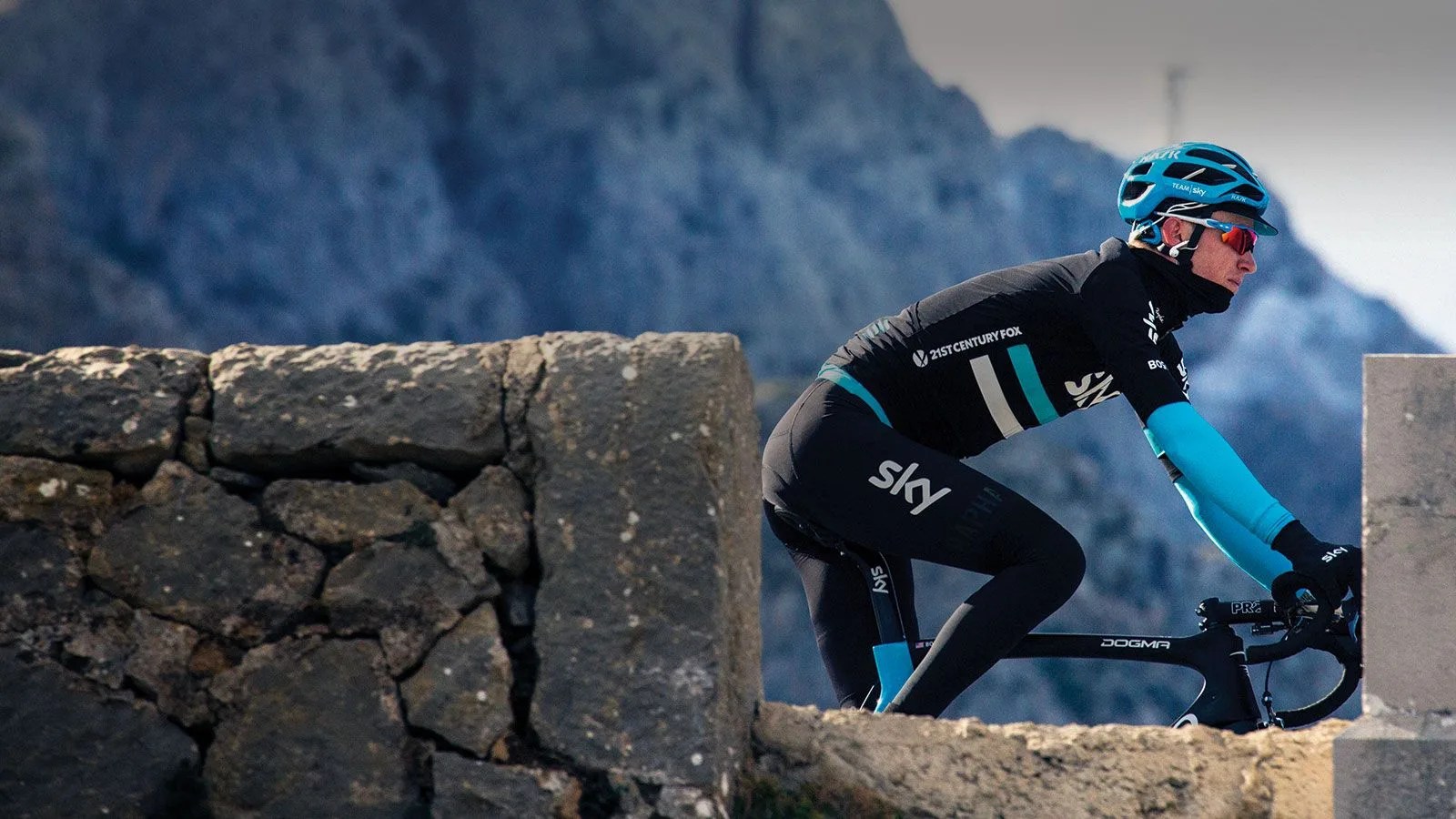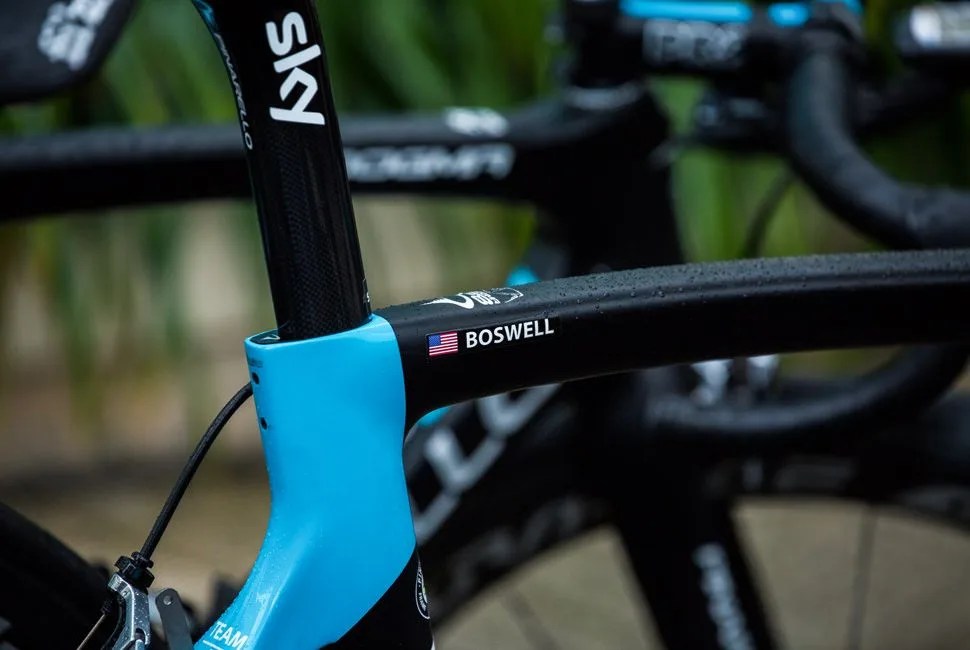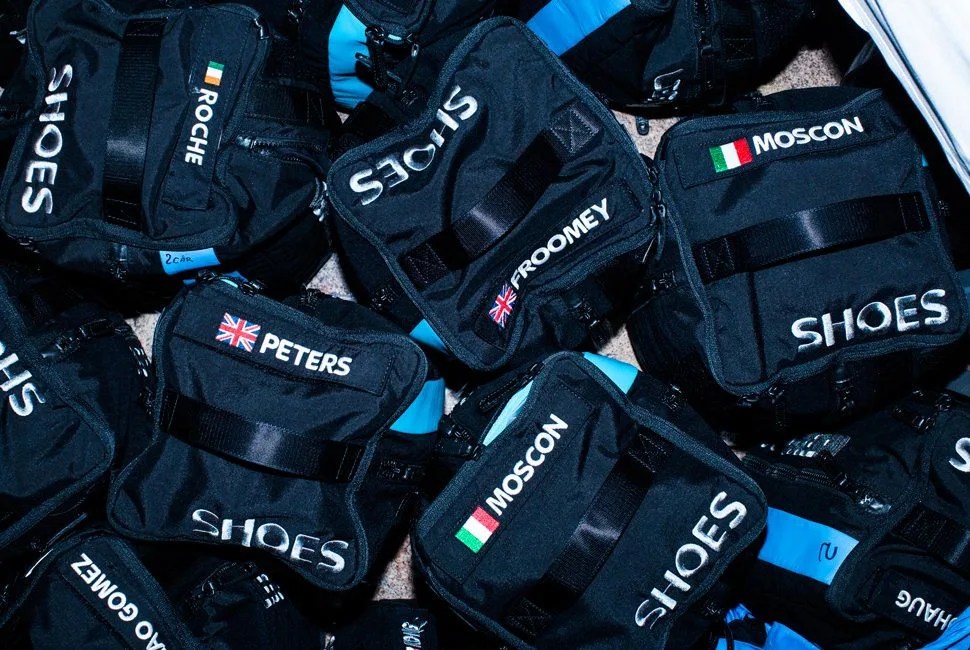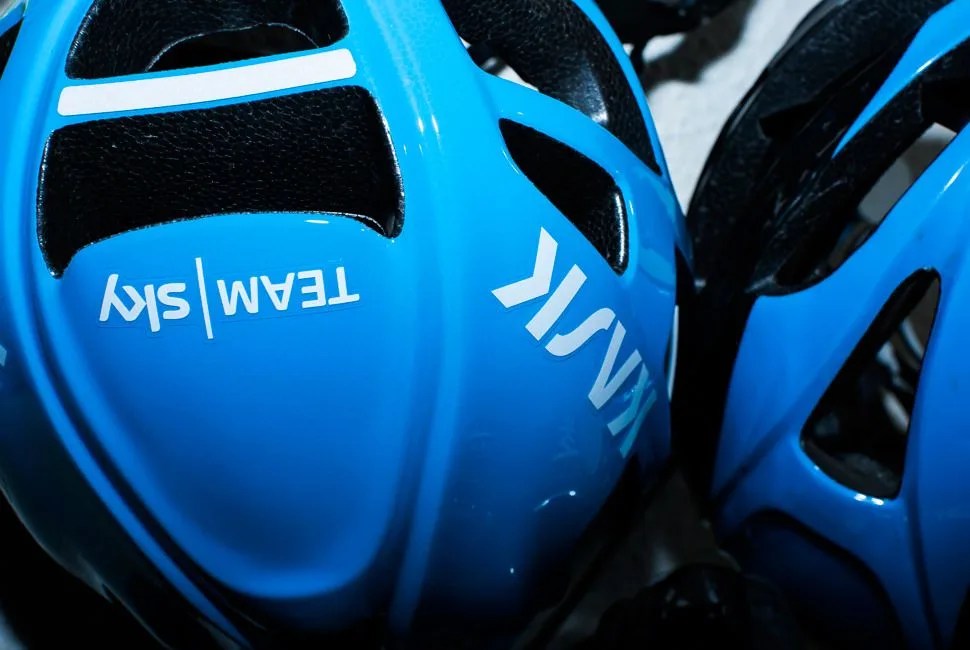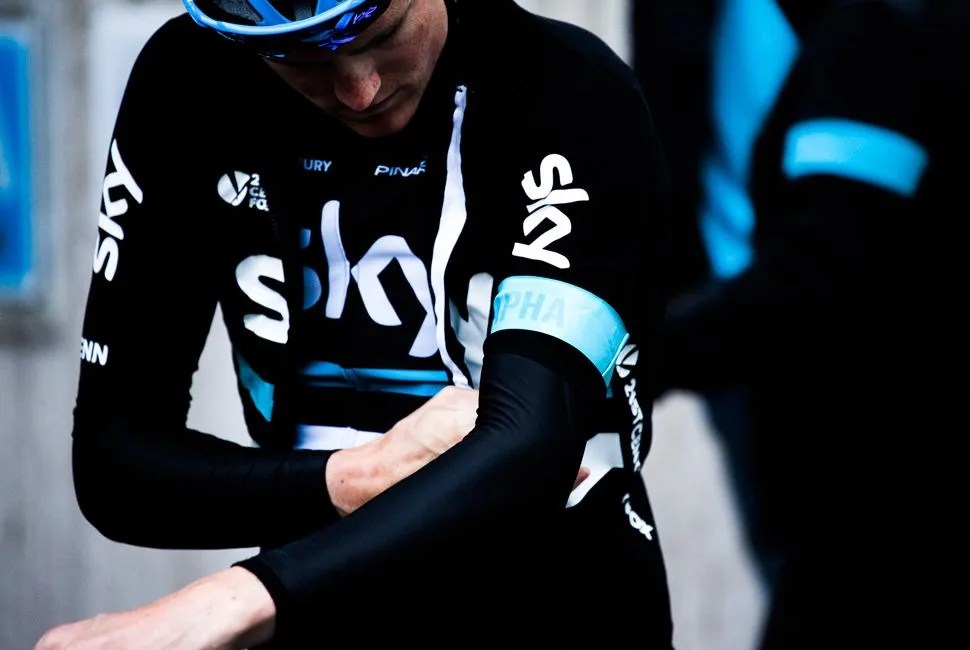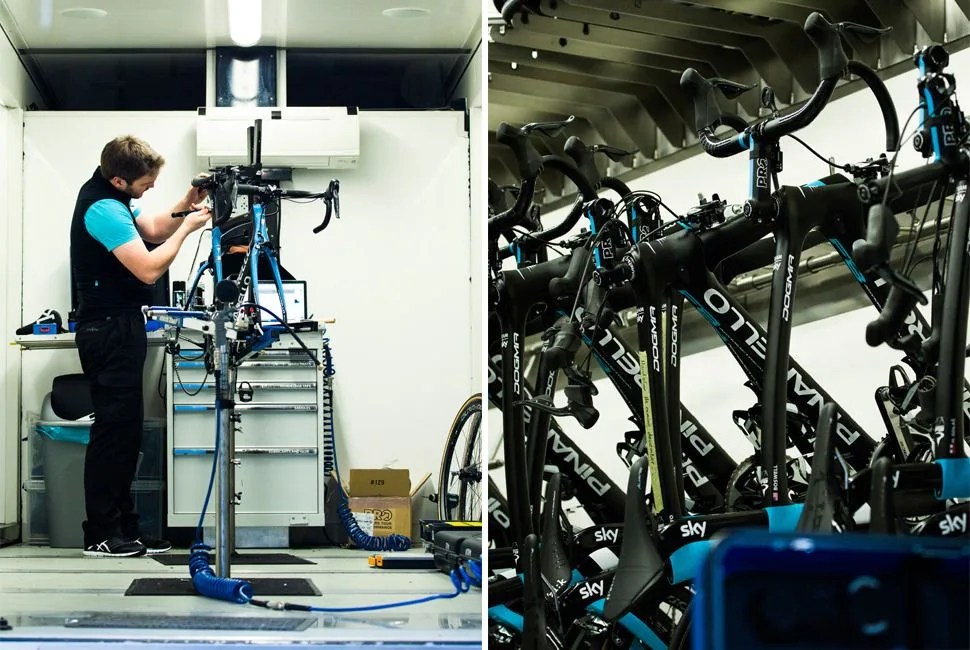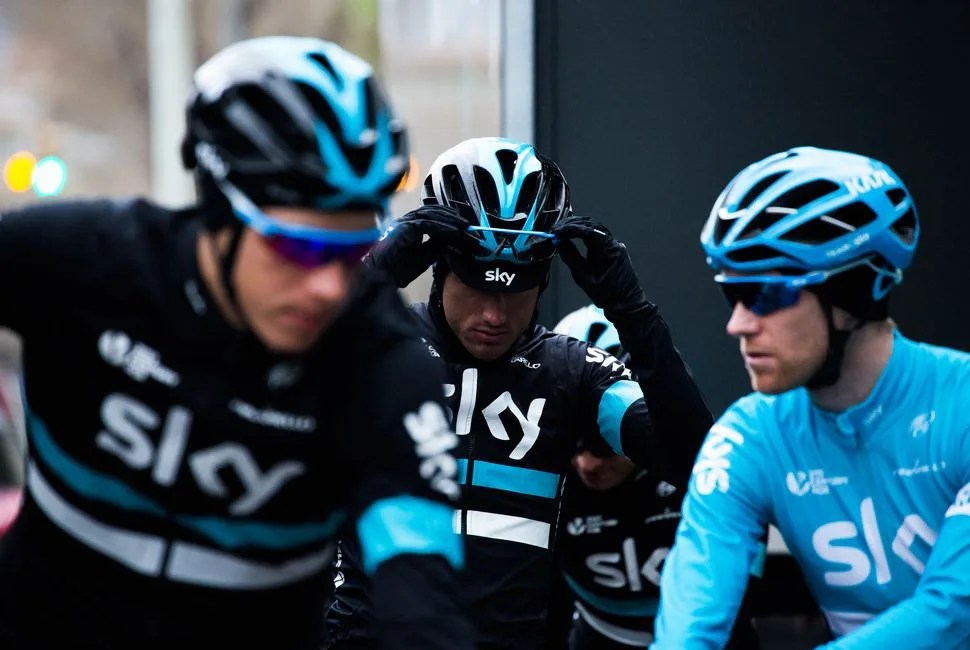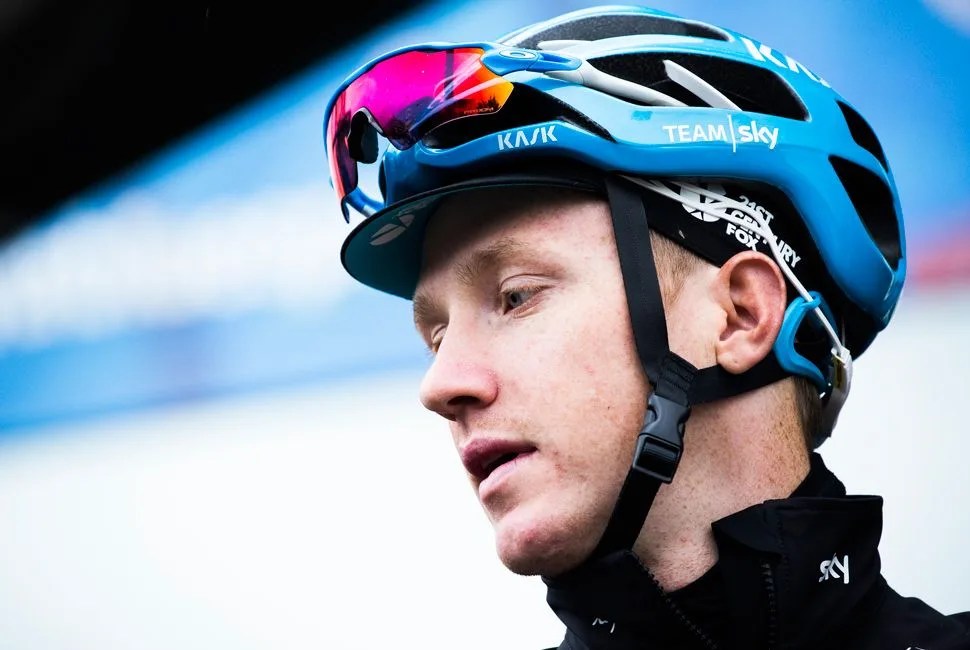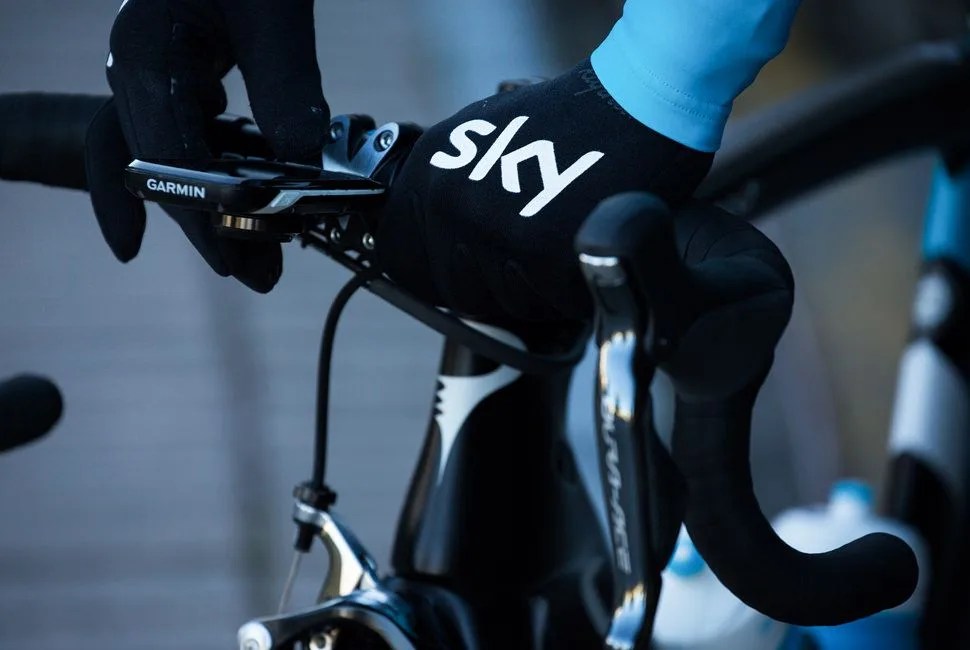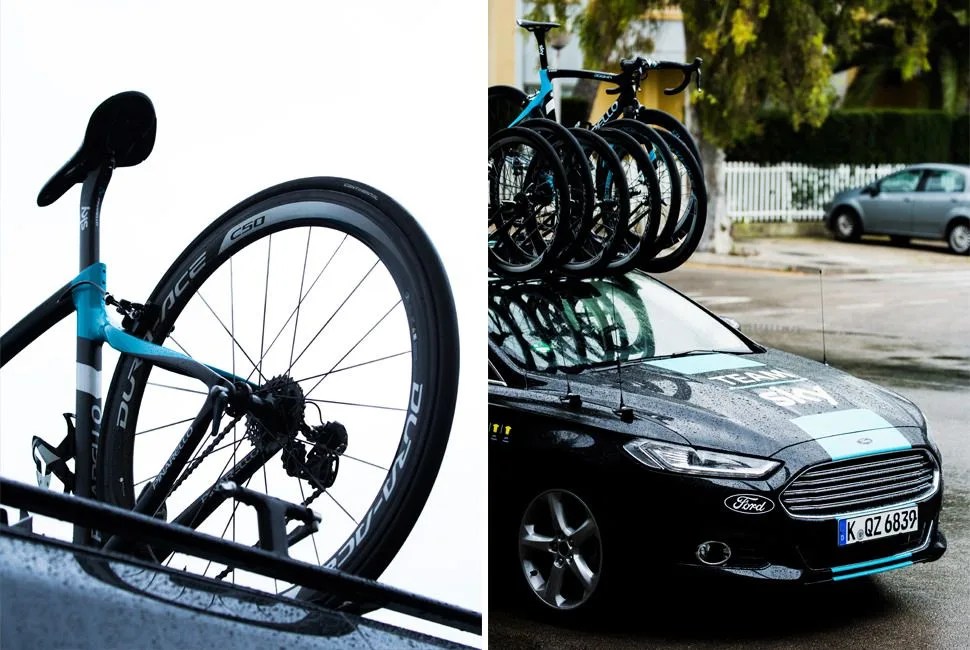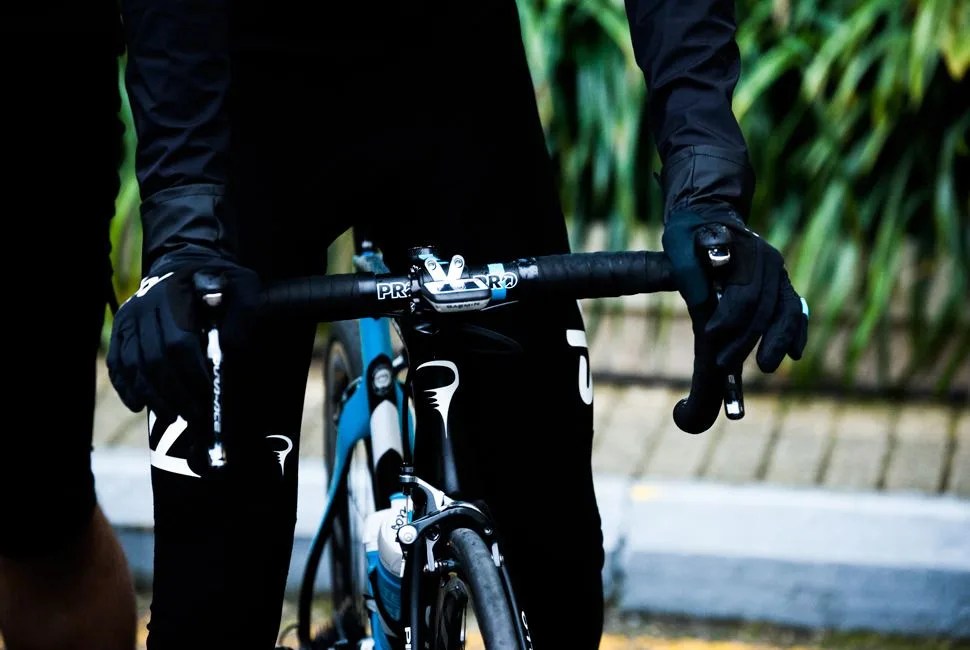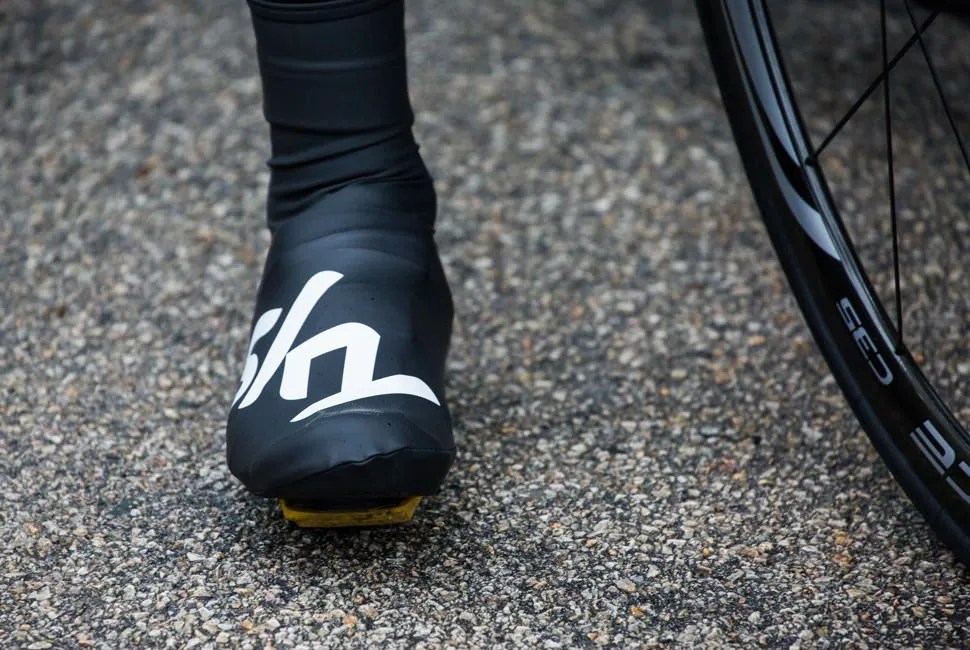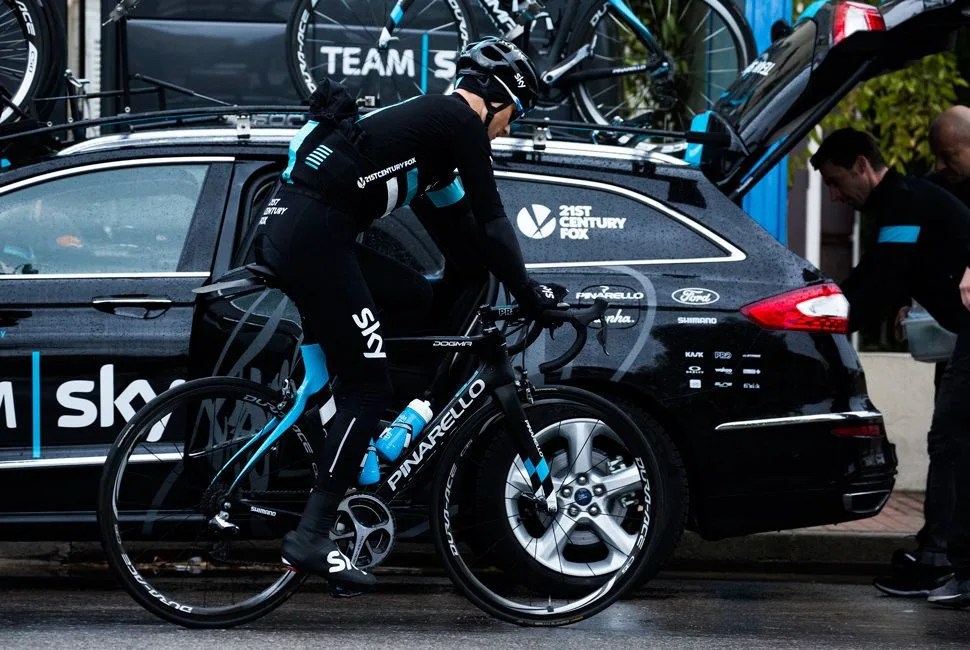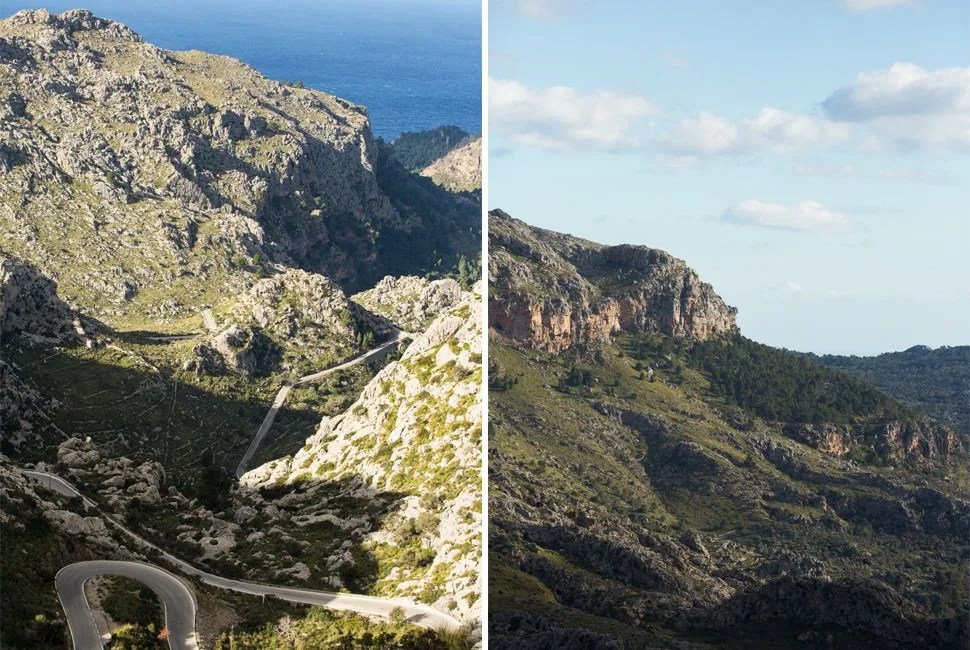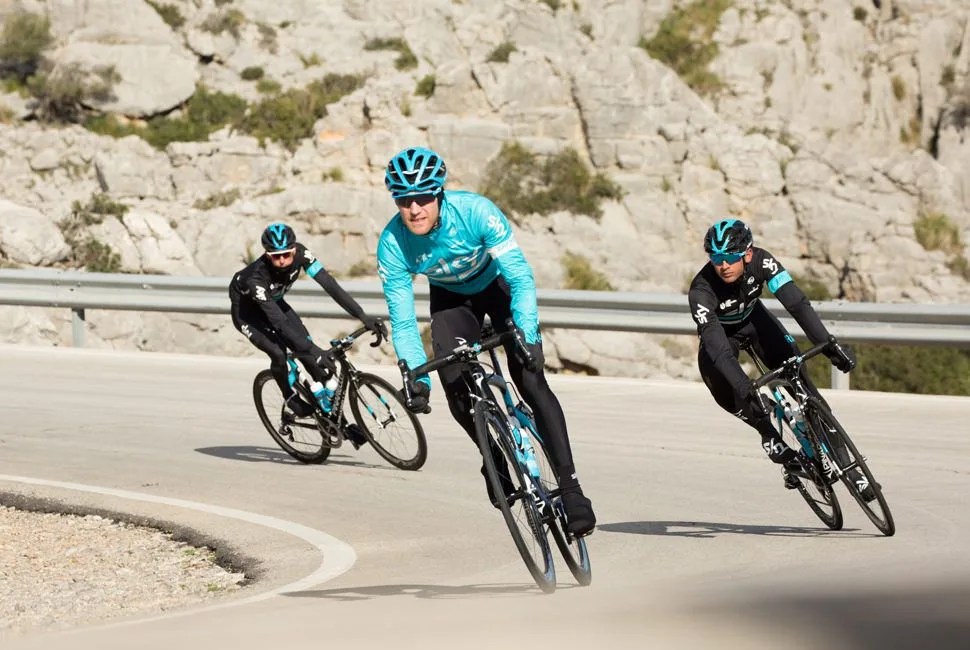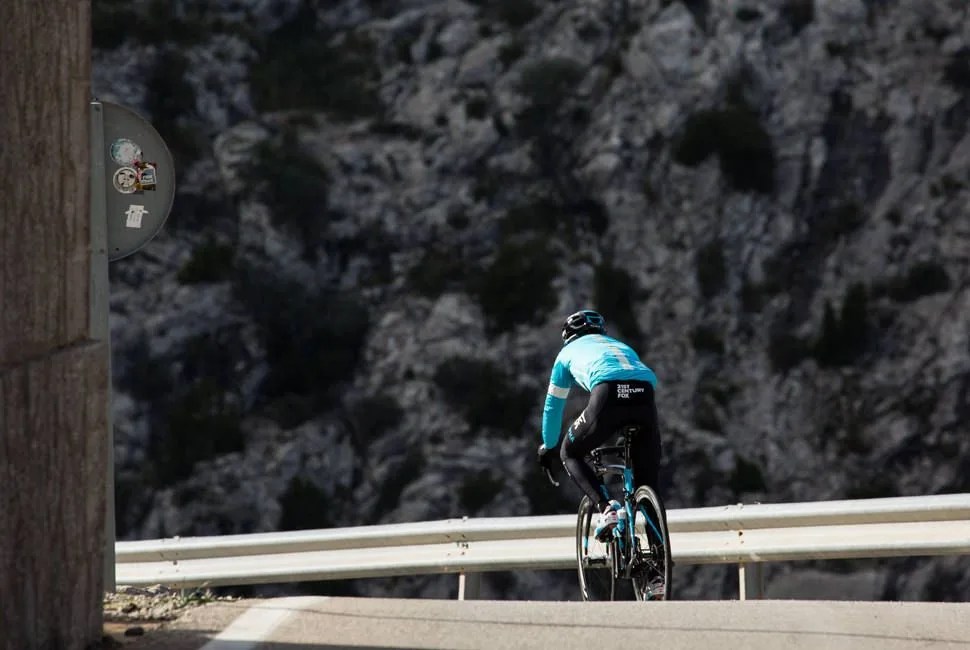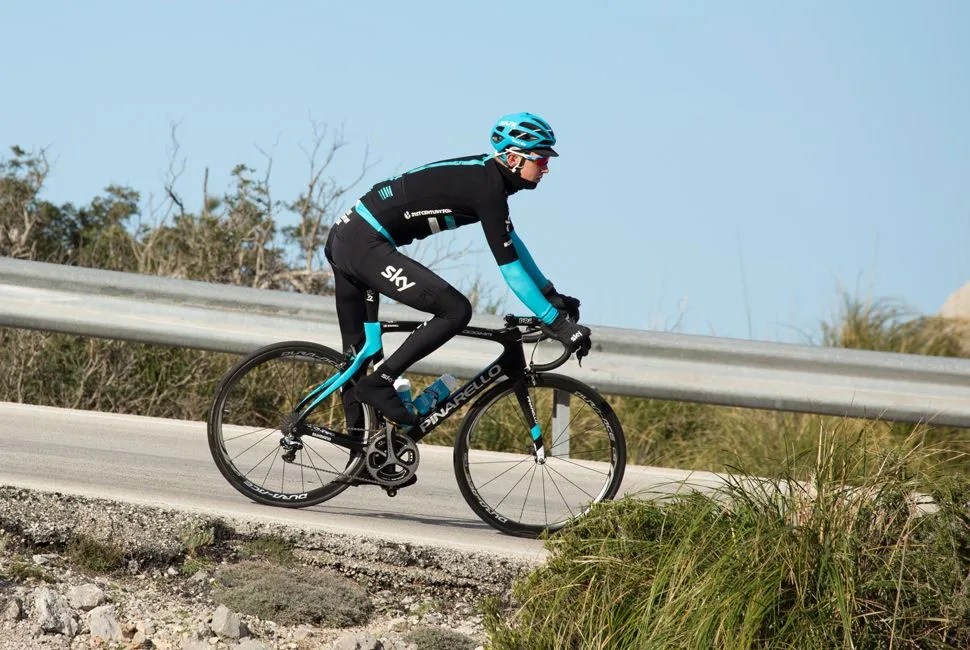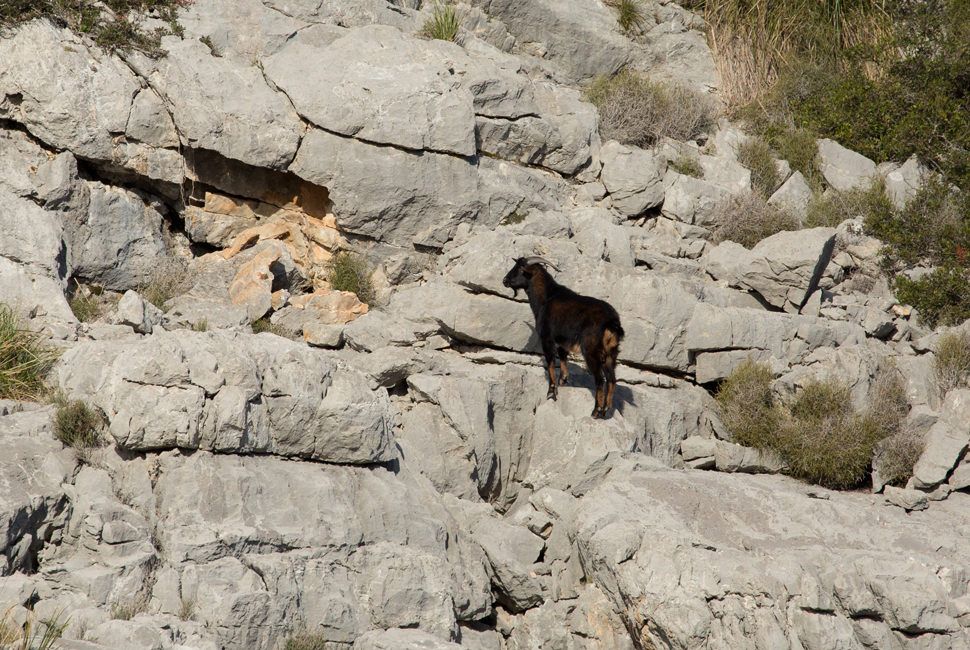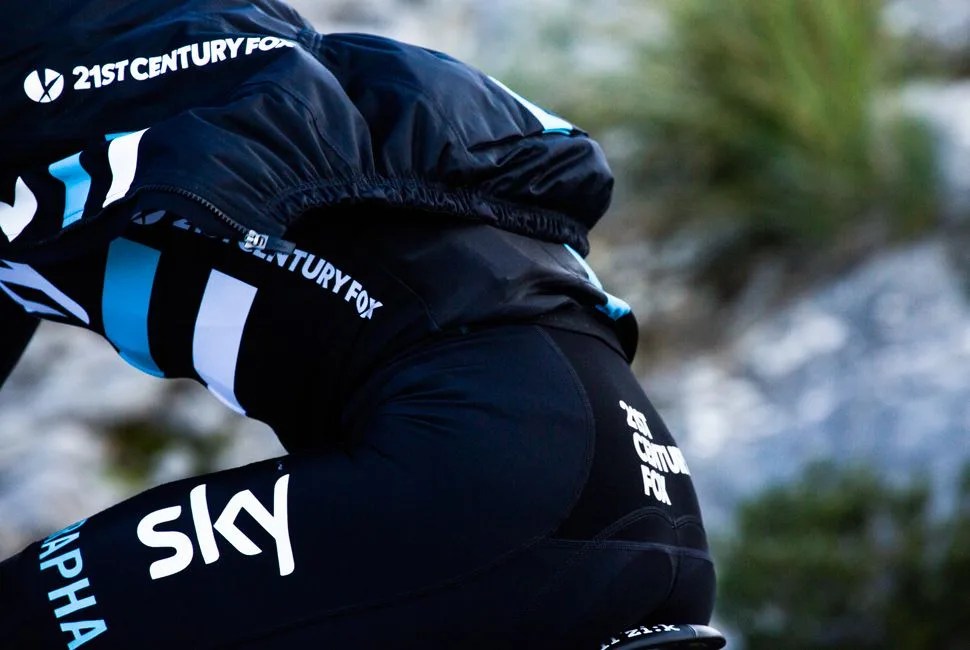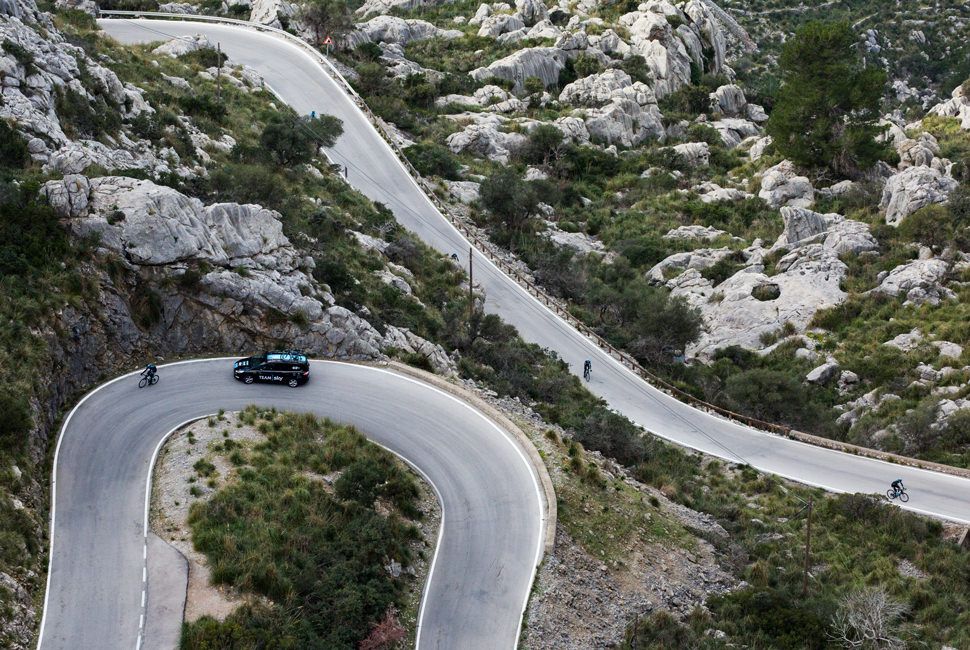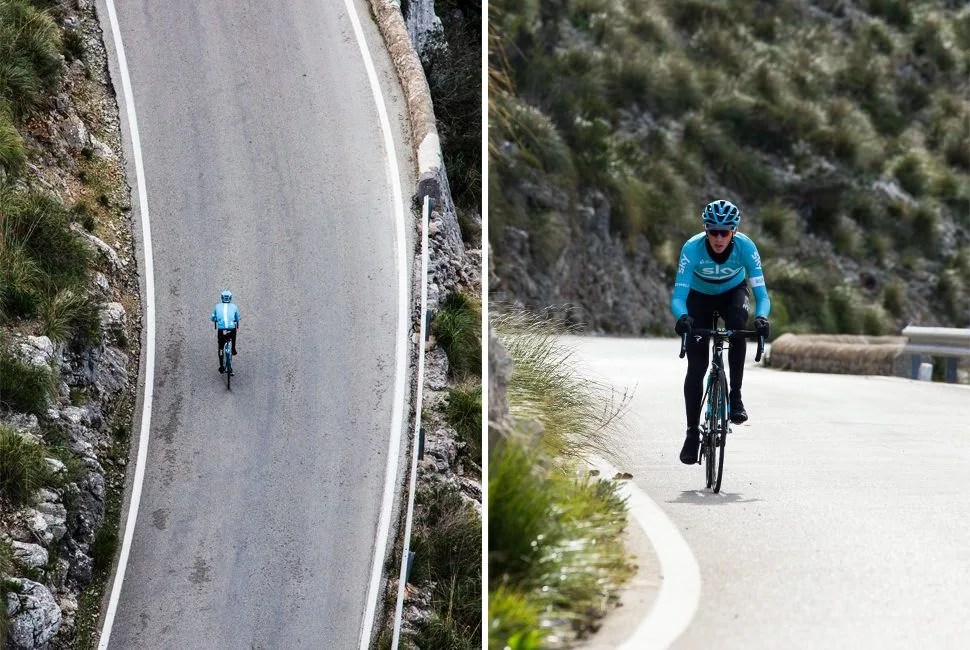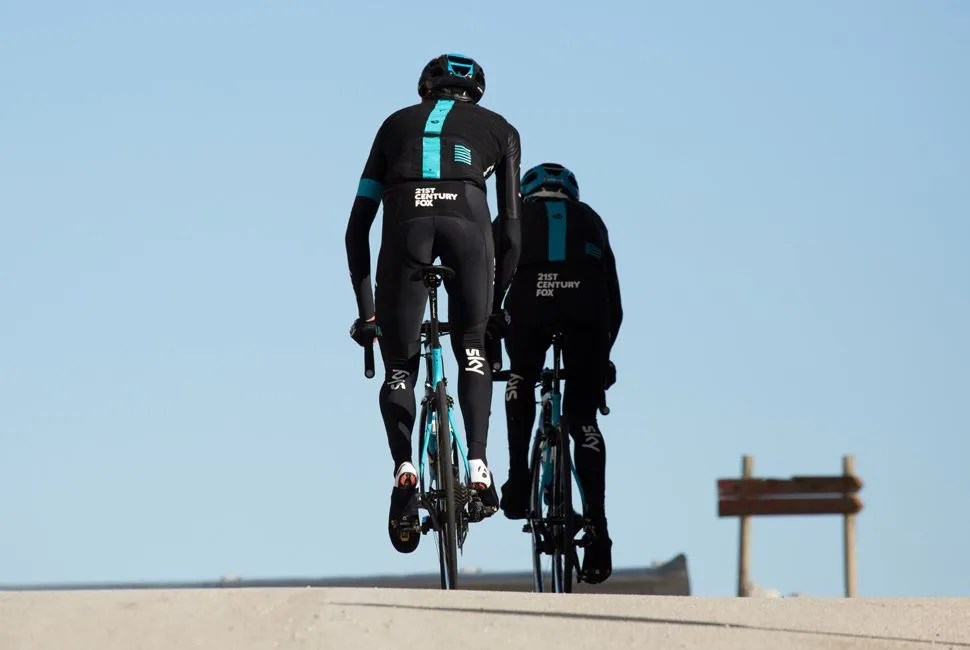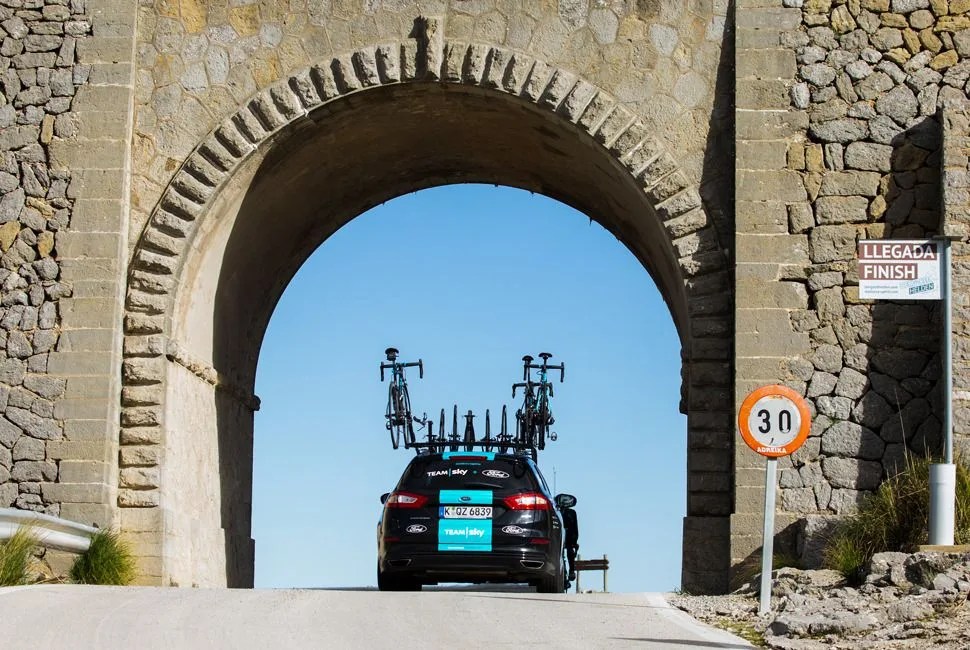There aren’t many American professional cyclists riding in Europe. In fact, out of the top 100 only two are from the US — Tejay van Garderen and Brent Bookwalter — both of whom ride for BMC. But 25-year-old Oregon-native, Ian Boswell, the only American on Team Sky, may be poised to change that. In the past few months, a number of cycling publications have touted him as a rising star, something that Team Sky’s top cyclist, Chris Froome, has reiterated.
Boswell, who grew up in the outdoors — fishing, camping and hunting with his brother — started cycling at a young age and rose through the pro ranks quickly, riding for Bissell in 2010 before moving to Trek-Livestrong and now Team Sky, which is widely regarded as the best cycling team in the world. He also has a number of top finishes under his belt, including two first place spots at the Nevada City Classic, plus a number of team wins with Team Sky, the most recent of which came at Paris-Nice, where Geraint Thomas took first place.
Boswell’s specialty is climbing, where he offers support to riders like Froome, Mikel Landa and Thomas, putting them in the position to take the finish line when it comes to the sprint. This season, Boswell hopes to offer more than just support in Italy’s Giro d’Italia where, if the opportunity presents itself, his eyes are on a solo stage win. In preparing for the Giro and the rest of the season this winter, Boswell and his teammates trained in Mallorca, Spain, on the winding coastal roads, where we first met Boswell and spent some time with Team Sky. We interviewed him after the Paris-Nice win, an exciting race that came down to a margin of only five seconds, and a stage being canceled due to large accumulations of snow.
Q: It must have felt great for Team Sky to win on your home turf this past weekend.
Ian Boswell (IB): It was a really close race in the end. We win so regularly and we win so many big races frequently that sometimes we forget what we’re doing. We finished Paris-Nice and then — boom — we are thinking about Catalunya with [Chris] Froome. [Alberto] Contador is going to be there again and I think Tejay [van Garderen] and [Alejandro] Valverde and Richie Porte. So it is instantly on to the next race.
There is always another goal and there are always more objectives. It turns out that G [Geraint Thomas] won the race by five seconds, and there was a stage when there was a time gap involved in the sprint and he was at the front because we put him there. So it really just makes you realize what we do and the fighting that we do every day — it pays off in the end. The first time I did Paris-Nice with Richie Porte in 2013 we won as well. So at some point in my career I’m sure I’ll look back on being on a team that won Paris-Nice two times. Thomas texted me the other day and just said, “Hey man, thanks for your help all weekend. Just soak it in and enjoy it because it’s a huge accomplishment. You just won one of the biggest and proudest bike races in the world and it’s something really special.”
Q: How long does it take you to recover after a stage race like that?
IB: It’s nice how quick you recover. Finish Sunday, did an hour and a half yesterday, three hours today. And then tomorrow, depending on the weather, I’ll try to get another couple of hours in and then race again on Sunday. So full-on back in the season.
Q: What do you miss most about the US living in Nice? Can you get a good cheeseburger in France?
IB: One of the biggest things, culinarily, would be Mexican food. It’s really hard to find spicy Mexican food or just good tortillas. Once in a while we’ll cook up fajitas on the barbecue and get the guys together and do some guacamole and nachos. But I think the biggest thing is just the convenience of living in the US. In the US you can find an organic tomato at two in the morning if you want to. Whereas in Europe, I just went to try to get a haircut, and for some reason all of the haircut places were closed. It’s a different system and it takes some time to get used to.
13 photos
Q: Is it possible to be a pro racer in Europe but still be based in the US?
IB: There are a few riders who have tried that before, to spend more time in the US, but they always have some sort of European base. Whether it’s in Nice, Italy — maybe Tuscany somewhere. And some people go back to the US more so than myself. For me, as someone who comes from the west coast, it’s a lot further to get home compared to someone who lives on the east coast. It’s a full day’s travel on weekends.
Q: Can you tell me a little bit about what training camp is like?
IB: We usually have one team camp at the end of November, or early December, before Christmas time and then one kind of at the start of the season in early January before the racing starts. The December camp tends to be a little more relaxed, more general riding, endurance rides, team building exercises. Getting together and getting the new guys incorporated into the team and just getting everyone together and seeing where everyone is at. The January camp is a bit more focused. We split up into groups — the classics riders, the stage race riders, the climbers and the time trial specialists — for more specific training. That’s also the time of year that you really start to dial in everything. You have new guys coming to the team, you’re getting used to the new bikes and positions and a new kit and everything like that. So all that stuff is sorted out in December and January so that once the racing starts, no one runs into any issues.
Q: You also went to South Africa to train with Froome, who has sung your praises since then. That must be a good feeling.
IB: It’s cool to spend time with Froome one on one, just sharing conversations out on the road. We have a similar upbringing. We have a similar mindset towards life and what we did as kids and what we want to do after our career is over. Just being outside and fishing, hiking and camping — you know, all these things that are very instrumental to my life that are maybe not so present right now. The outdoors and whatnot, I don’t really share those interests with a lot of the other teammates. In Europe it’s a lot more city life and shopping, watches and clothing. I’m not really into that aspect of life. So just on a human level, being able to share with him what we would be doing if we weren’t cycling, or what we’re going to do post-cycling, was awesome. And we just really connected on that personal level which made the training that much more enjoyable. Just to go out there and hammer and have those positive vibes — to understand that there’s more to the world after cycling.
Q: It seems like Sky is a pretty tight crew. Who has the best nickname on the team?
IB: We have a massage therapist and we call him Siri, like the same as the iPhone Siri. He speaks perfect English, but almost like a robot — very thorough with everything and kind of broken up, the way he speaks. His actual name is Nick and he’s a great guy.
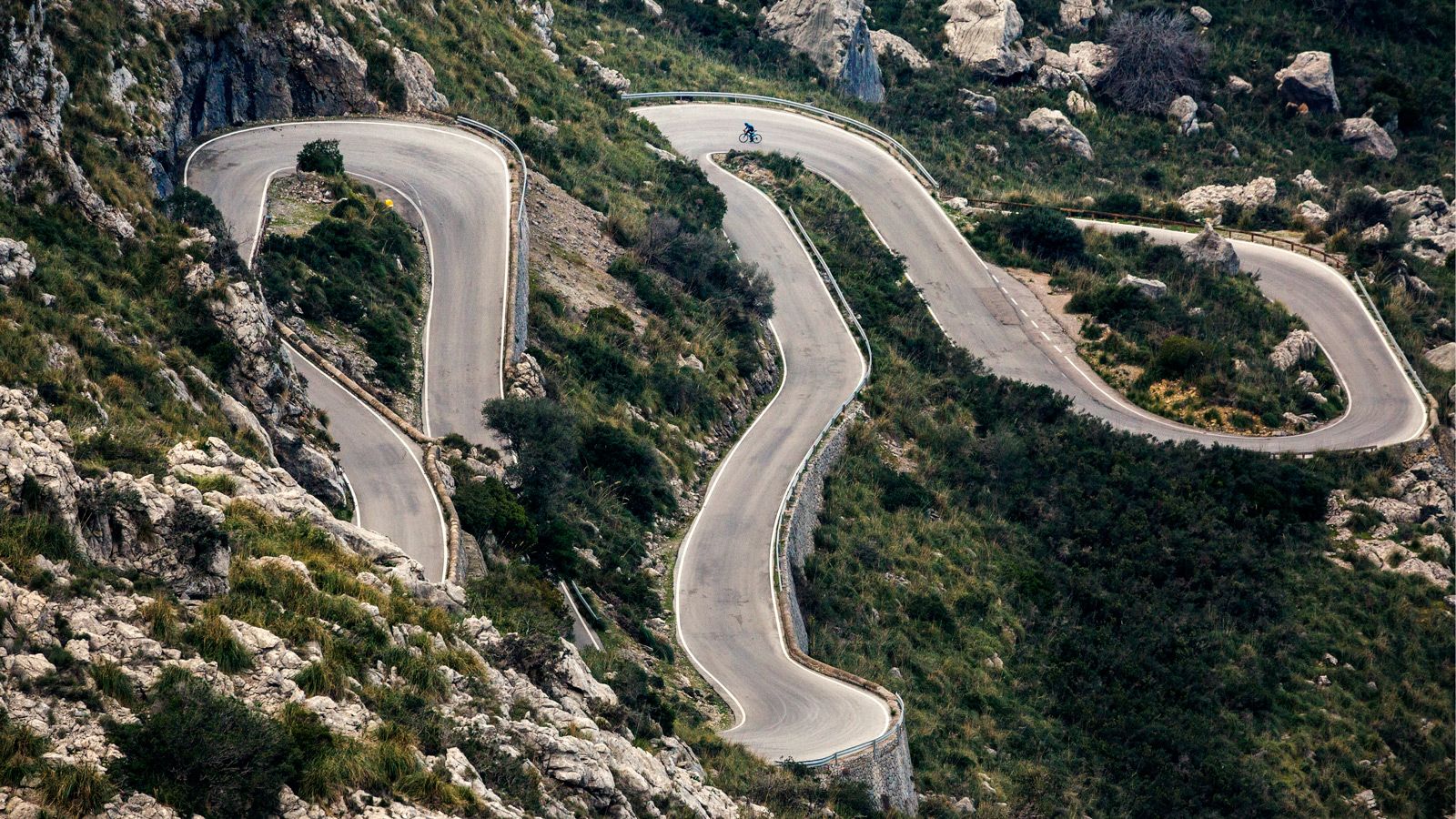
Q: What do you do in your time off?
IB: We do get a bit of an offseason that ranges from October to November. It’s relatively short, just because with the level of training that we do, it’s easier to stay on a higher pace rather than starting from scratch. Last year I went to Thailand with my dad and just hung out there and went to the beach, drank some beers in the afternoon and just relaxed. Other off seasons I’ve gone back to Oregon, just to do some hunting and fishing with my brother, some camping. The things that I love to do and did growing up that I don’t so much get a chance to do anymore. This year I’ll have a break in June, after the Giro, and I’ll go back to the east coast with my girlfriend. She’s from Vermont, so we’ll go up there and see her family and just try to go and get away for a week; a mental break just to sort of shut your team phone off, not have to upload any power files, and just be a 25 year old boy enjoying life. I’ll do some American things like have a bonfire, roast marshmallows and whatnot.
Q: Who did you look up to when you were coming up through the ranks?
IB: I think there’s no question for any young rider my age that Lance Armstrong was our idol. That was who we looked up to. That was what got me excited every summer watching the Tour. Those were kind of my prime years growing up in cycling, watching Lance race, following his career when Discovery Channel did the Lance Armstrong Chronicles. It just made me so excited to get up and race. I think a lot of people feel like it’s a touchy subject because of what’s come out with his doping history. That’s been a bad part of the sport, but at the same time without someone like Lance, I don’t think a lot of us Americans would be racing in Europe right now. He brought a lot of attention and he brought a lot of funding to American cycling and to developing cyclists in the United States. The team I was on before Sky was Trek-Livestrong, and it was a team that was directly funded and organized through Lance’s connections. To a large degree, I wouldn’t be here today if it wasn’t for Lance.
Q: What are your thoughts on professional cycling in America? Is it growing? Do you think the sport will ever be the size it is in Europe?
IB: I definitely think that cycling as a whole has grown tremendously. The culture of cycling beyond racing has grown dramatically. It’s also kind of becoming the new golf. Businessmen and lawyers are not only going on golfing trips to Cabo, but they’re going on cycling trips to the Alps and whatnot. So I think it’s trickling over to becoming a popular sport. Whether the racing and the draw ever reaches the same level as Europe, I don’t know if the history is there. But the more people are involved, the more people start to enjoy it and the more people start to appreciate the sport and what we do.
12 photos
Q: Team Sky’s kit for Paris-Nice is part of Rapha’s new Shadow collection. How important is your kit?
IB: This past week in Paris-Nice was the first time that I’d ever raced through snow. The quality of the kit is phenomenal, and I’m not just speaking to this because I ride Rapha and I have a relationship with them. You see some of these other guys in standard bib shorts and jerseys and rain jackets, but they were just made out of polypropylene and lycra material. That’s fine for a normal stage, but when it’s wet and cold the water penetrates through that and you feel the cold water on your skin. We were covered head to toe in the Shadow range. We had the booties, knee warmers, shorts, jersey, arm warmers, even gloves, and I didn’t get cold until the race was cancelled due to snow. If you look at the winter kit we have now, it’s race-cut, which is phenomenal, to have a kit that’s both warm and functional but is racey enough to not feel like a goober with a big flappy jacket. I think a lot of the old school Euros tried to be so tough, but there is nothing fun for anyone about being miserable and cold.
Q: Does having a confidence inspiring kit also help with the mental side of racing?
IB: Definitely. On the bus before these stages we have a debate amongst riders of what layers to wear, what to bring in case it gets colder or what you can strip off easy. That will always go on with cyclists, just deciding what to wear. Looking over at people and seeing them shivering after 20 minutes of racing and your partners are comfortable — not too hot, not too cold, just really comfortable — that really benefits your performance because it’s one less distraction. The minute you get cold, everything changes and you can’t brake, you’re not shifting as well, you’re missing turns because you’re not able to grab the brakes properly. You get so cold that your brain starts to function on a level of performance such that you go into survival mode. Once you hit that point, your racing is almost secondary to keeping your body in survival mode. It sounds crazy, but no one is making us go out and ride in these conditions. It’s the camaraderie and the team. You know that, “Okay, in two days it’s not going to be snowing.” You don’t want to pull out of a race just because you’re cold.
“I think there’s no question for any young rider my age that Lance Armstrong was our idol.” – Ian Boswell
Q: We all hear about etiquette in the peloton and how some people observe it more than others. What are some unspoken rules of the peloton?
IB: I think maybe I have a skewed perspective of etiquette because I’m on Sky and we tend to get a lot of respect within the peloton, just because we are a team that tends to ride at the front of races and puts in work that really benefits everyone. Oftentimes, when you’re in a line with your team in the peloton, the proper etiquette is to let that team do their thing. If you’re going into a turn and they have eight riders lined out, you don’t chop them up. That said, doing Paris-Nice, which is kind of a classic, all etiquette goes out the window. You may know friends in the race and they may chop you and then you chop them and it’s just racing. You get to the start line and you’re friends, you’re chit-chatting and next thing you know you’re bumping elbows. I think that TV makes cycling look very organized, but I wish I could just freeze time and put family, friends, girlfriend, brother on the bike and press play just so that they could see what it’s like to be in there. The chaos of the peloton.
In Paris-Nice we were descending down off these mountains with a cliff on one side and we’re on the edge of the road. It had pretty poor surfaces but the road was still there, and you just put so much trust in everyone. I think that when the racing is on, it’s on, but I think there is still a lot of etiquette within the peloton of just having some sort of respect. You know, punching out potholes, punching out rocks. There’re times when it doesn’t happen. But at the end of the day we’re all racing for a living. It is interesting to see kind of the “kill” mentality that gets into riders in the heat of battle. People who are best friends are screaming and yelling at each other, taking each other to the side of the road. It really is war out there for us, not to make it sound dramatic.
Q: What race are you looking forward to most this season? What are some of your goals?
IB: The Giro is kind of my big target for the whole season, I guess, which is a month and a half away now. It is kind of all eyes on the Giro. A personal objective would be some good finishes or just to be a key helper in the mountain stages for [Mikel] Landa, who is on top form. That is kind of my big objective. There is a lot of room for improvement, but just to see the progression is refreshing to me — to see that I’m still getting better.
